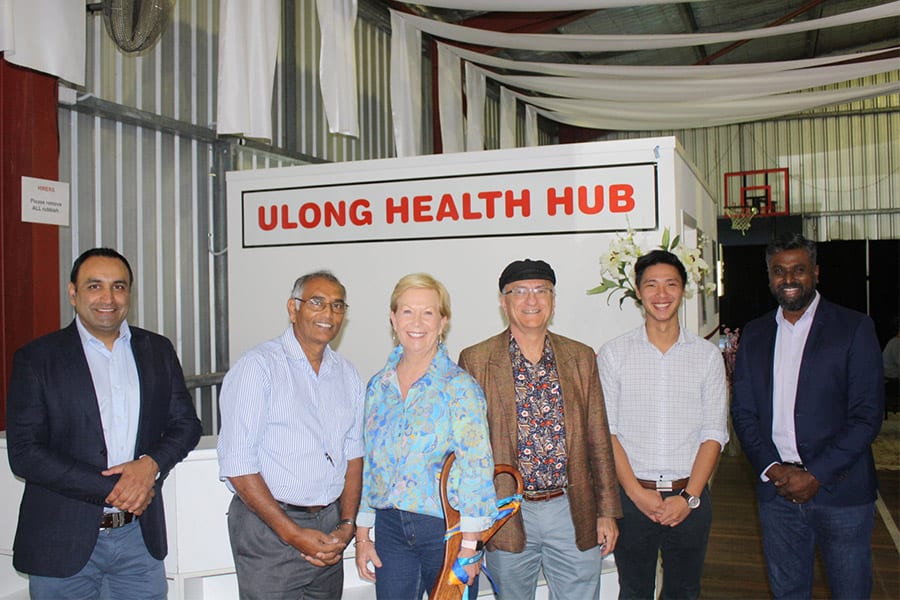This week’s opening of the Ulong Health Hub has been a long time coming for local resident and chief proponent, Carol Cleary.
It’s been more than 20 years since the village had a GP, and at least five years since Mrs Cleary began the fight to improve access to health services for people living in the Eastern Dorrigo area.
Now, Healthy North Coast has chipped in along with others including Coffs Harbour City Council, TAFE NSW and Coffs Harbour’s Northside Health to help make the dream a reality.
Capping off the good news and crucial to the health hub’s success is Northside Health GP Jay Ruthnam’s commitment to providing monthly bulk-billed, face-to-face consultations in Ulong.
The health hub will operate out of Ulong Hall in conjunction with an ongoing fortnightly nursing service provided by TAFE NSW – scheduled for two weeks after Dr Ruthnam’s regular visit.
Supporting this service on the first Tuesday of the month will be video telehealth, with residents able to make appointments to speak to their regular GP, or a GP from Northside Health.
“This is the culmination of so many organisations coming together to answer the call of the community,” Mrs Cleary said.
“The stars have aligned and it’s just beautiful. It’s what happens when everybody has a ‘can do’ attitude.”
In 2018, Healthy North Coast provided funding of $10,000 to build a clinical space within the Ulong Hall. Since then, nursing students from TAFE NSW have staffed the nurse-led clinic. They have provided blood pressure and health checks for residents of Ulong, Lowanna and the surrounding district. The nursing students also help with chronic disease management and health education.
Most recently, Healthy North Coast supplied two dedicated laptops for telehealth, a fridge to keep medicines and specimens, thermometers, blood pressure monitors and oxygen gauges.
“During the past few years, these small villages have experienced their fair share of tragedy through a number of suicides, heart attacks, vehicle accidents, drought, fires, floods and the coronavirus,” Mrs Cleary said
“This is such a wonderful result for our communities. All those years of hard work and persistence have paid off and our mountain communities will be better for it. Everyone involved should be very proud of themselves.”
Appointments to see Dr Ruthnam can be made through Northside Health on 02 6652 5322 or as a ‘walk-in’ on the day of his monthly visit.



